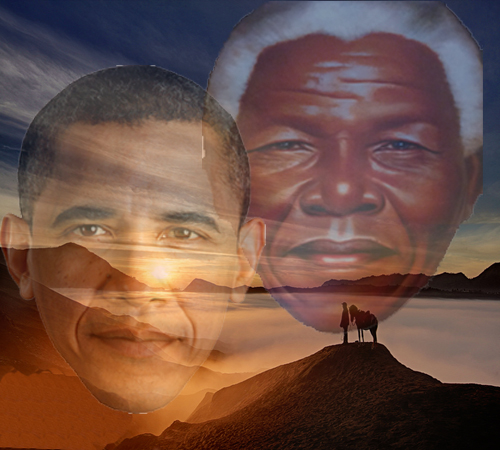
There’s a lot of myopia in South Africa’s most recent history.
In the rainbow of organizations that confronted apartheid — from the communist party to the almost identical but intensely rival trade unions, to the ANC to the Zulu off-shoots to the white ladies’ “Black Sash” – there were violent disagreements over what a new South Africa should be.
Ending apartheid was the only unifying force. I often wondered while working in a shared office in Johannesburg in the late 1980s and coming into contact on a daily basis with all these different political activists, that if apartheid ended quickly and abruptly, say by some or other group staging a successful coup, that all hell would break lose among the opponents of apartheid struggling for control.
All but white anti-apartheid groups also were unified in desiring a socialist society, one that was fairly tightly controlled from the top, and this was most represented by the certainty that South Africa’s mines would be nationalized.
The gold, diamond, coal and precious metal mines of South Africa is what gives it its wealth.
The communists and most of the trade organizations and radical youth groups also wanted to nationalize the banks. The apartheid government had essentially already nationalized the massive transportation system, so quite apart from equality for the races, education and health, nationalization was a fundamental core of the fight against apartheid.
But apartheid didn’t end abruptly with a coup, but with multiple years of negotiation albeit mostly in secret.
And today South Africa is one of the most capitalistic countries in the world. France, the Netherlands and the Scandinavian countries are far more socialist than South Africa.
The country is also increasingly corrupt. No-bid contracts are the rule of the day for the current government, and that has led to a clique of new age business people that it is assumed either give huge kickbacks or equally valuable political support.
It has compromised the education of young children, the quality of infrastructure, and even the government’s own plans for home construction. This very rich country seems unable to improve the lot of its most oppressed, while its leaders become millionaires.
The country lost a decade or more in the fight and control of AIDS, as both Mandela and his successor refused to believe it was a sexually transmitted epidemic.
The youth of South Africa, those who are called “new borns” for having arrived after Mandela was freed, are understandably angry and impatient. The passing of Mandela will give them new strength.
I believe that one of the reasons South Africa flounders today is because Mandela carried no clear ideology with him into the new South Africa. Like Obama, overwhelmed at the helm of history making a radical change in course, Mandela became the Great Compromiser.
Keeping society at peace during such a serious change overwhelmed everything else. This is completely understandable. For if peace had not been maintained, a revolutionary period would likely have resulted in an even worse situation.
The country’s constitution is a magnificent document, but Mandela had little to do with it (and today’s problems rest squarely in not implementing it fully and well.) The lack of retribution and aura of magnanimity ascribed Mandela was really created by Desmond Tutu and others. The transference of real economic power that was tried in the late 1990s was instigated by the youthful agitators in the mines and the ANC, and by that time, Mandela was already gone.
One of the reasons Mandela did not oversee a major transformation of South African society is because he was a construct of others who were much more powerful than himself.
It’s fascinating today to read of white South Africans’ certainties that Mandela was a maverick operating outside ANC direction, while simultaneously listening to old ANC members claim how they groomed Mandela as their figurehead from the getgo.
The real truth is likely somewhere in between, in that compromise that is Mandela’s greatest and perhaps his only legacy.
“Real Change” remains a political banner. You can change the color of the president in both South Africa and the United States without altering where black people remain on the graphs of economy.
It’s a question that is being asked round the world, not just in South Africa.
But I admit it was a bad time, the early 1990s, to experiment with new social orders. The Cold War had been definitively ended with a victory of capitalism over socialism. It would be several more years before Hugo Chavez would be democratically elected to renew such experiments, and that hasn’t gone particularly well.
Mandela will forever be remembered, and rightly so, for peacefully transferring power from the oppressors to the oppressed. That’s remarkably important and a statement for the ages that retribution never works for any ideology, any idea.
He deserves the great honors that attracted. But the concept of a peaceful transition wears poorly when not enough then changes as a result.
The Cold War has ended. Overt racism at least is grudgingly ending slowly. The Great Recession is ending. From South Africa to the United States, there is an energy in the youth to bring to fruition the symbols their parents created as landmarks out of a terrible past.
It could be an exciting future. And if so, Mandela’s legacy of peaceful transition — and likely Obama’s too — will be an historic moment, the last moment of symbol, a turn towards substance.